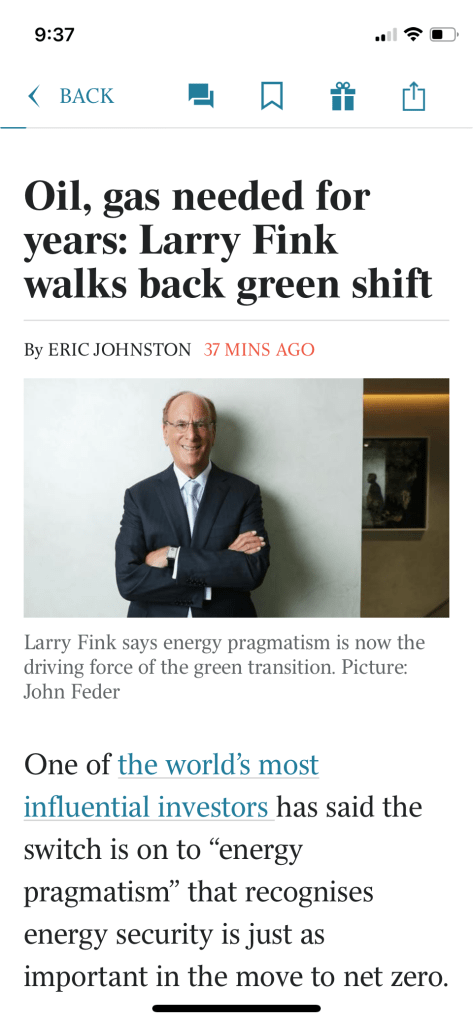If you were a top executive of the world’s largest asset manager and a client withdrew US$8.5b from your management would you:
a) Be disappointed and then talk privately to the ex client about their rationale, or
b) Issue a public letter to the ex client condemning their actions as putting short term politics over fiduciary obligations and urging them to reconsider their decision?
Continue reading
